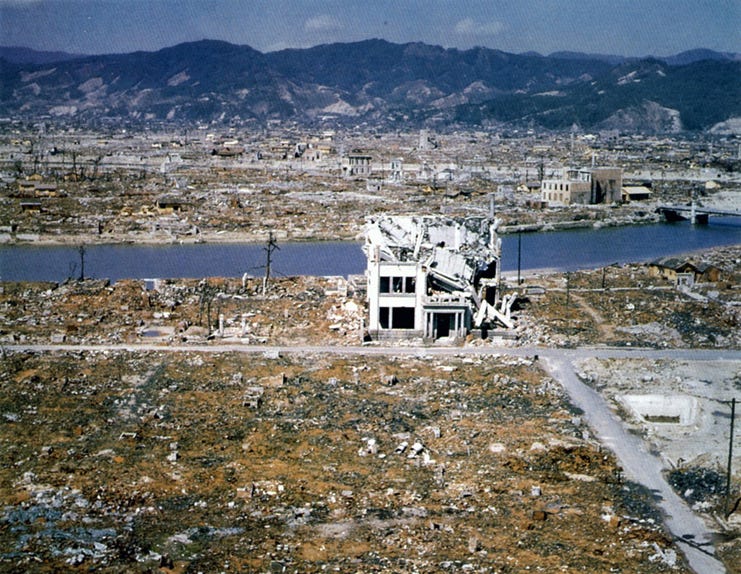What do you think of this essay? For me personally on the one hand i can see it contains a lot of idealism and is not exactly written from a Marxist materialist perspective, but on the other hand i think there is a lot there that westerners, especially liberals and ultra-leftists, would do well to start thinking about more.
It’s informative and ambitious. I learned quite a lot about Chinese and European history. The author is clearly knowledgeable.
The comparison between Hitler and Stalin is unfortunate because the premise is about misunderstood historical facts, and this is big one and a common one. This probably comes from being too ambitious and trying to triangulate with so many historical plot points. It likely seemed like an easy win for the author as most liberals will just accept it. But the work would be stronger without this example and probably without mentioning Hitler, too, unless that reference were contextualised to show the connection to capitalism.
It’s strange that there’s no mention of Marx or Mao or of Mao’s synthesis of Marxism and Eastern philosophy.
Was China ‘peaceful’ because (1) the Chinese are naturally cooperative or (2) China was colonised through a lot of ‘recent’ history?
The author suggests the first, which borders on racism and orientalism, even if it comes from the right place and is later qualified. But if (1) is wrong, an explanation is still needed to explain Chinese diplomacy in Africa and the Middle East up to the circa 1500s, which I believe was also quite peaceful. Perhaps it’s just to do with the logistics of maintaining military domination over the ocean before the dawn of capitalism and the development of guns? It’s an interesting issue, either way. (I realise the Mongols had a huge empire earlier, but this was based on horsebacked archery, rather than military seafaring.)
There is a truth to (1) but only inasmuch as it applies universally and it is impeded by the class system rather than facilitated by a philosophic system. In (IIRC) An Anthropology of Marxism, Cedric J Robinson explains how ordinary people were cooperative throughout feudal Europe, including monks, nuns, etc, in a similar way as is attributed to the Chinese in the subject article. For instance they tried to set up communal mills, but the feudal lords repeatedly shut them down These revolutionaries were simply crushed and crushed until Lenin et al applied Marxism and took the workers to their first durable success.
If it’s the second, (2), why has post revolutionary China been peaceful after ending colonialism in (most of) China? I’d argue it’s because it’s Marxist, not because people are committed to ancient Chinese philosophy (although that philosophy likely has some influence).
It could be a good bridging article for liberals, and it’s a useful one for Marxists. One problem with this idea is that it kind of relies on liberal racism. This is addressed, as reductionism and as generalisations. But if an author knowingly does both, it’s better to address them by revising them out, I think. Rather than including a weakness and arguing away from it, it’s better to remove the weakness and make the stronger argument from the beginning.
It would be interesting to see another article further exploring the suggestion that Chinese people are peaceful because they have not warred in the same way as Europeans. What of internal class struggles and civil wars, for example? Does external war count for more?
It seems that the related argument in the link relies on distinguishing modern China from it’s modern neighbours. One thing I’m unsure about is the extent to which it is accurate to distinguish modern China from e.g. modern or ancient Mongolia or Tibet. It’s at least a shared history. Implying that China was peaceful while the Mongols under Ghenghis and Kublai, etc, were the warlike ones is a bit strange. Not to mention the other 50 odd nations within modern China. I don’t think we can go off the modern map to decide which ‘cultures’ or histories are indicative of an ‘essence’ of Chinese people, culture, or history. That seems ahistorical and is a bigger issue than making generalisations.
I’m hesitant to recommend anything that uses (here, implies) the Stalin-the-mass-murderer trope. With this article, I’d still recommend it, but with a caveat about that point. Then I’d use the article to discuss how the synthesis of Marxism with the eastern philosophy discussed in the article demonstrates that Marxism is not Eurocentric, as many liberal critics claim.
It’s a good find, still, and I’m glad I read it!
Excellent critique. I had some of the exact same thoughts. Of course the comments about Stalin immediately threw up red flags for me that this author is still buying into a fair bit of anti-communist propaganda. Also, thank you for finding the right words to describe what was bothering me so much about the underlying assumptions of this article. I called it idealism but really it’s more like you said a sort of “benign” orientalism or liberal racism. What is entirely missing from it is proper class analysis.


